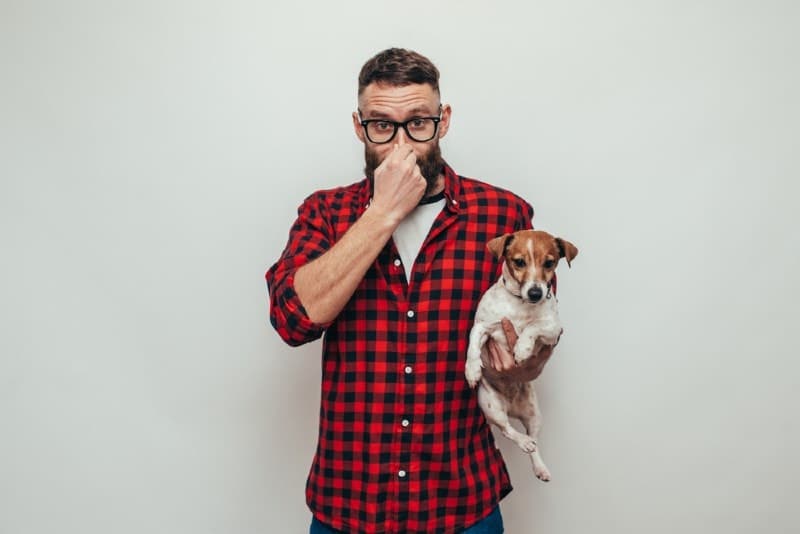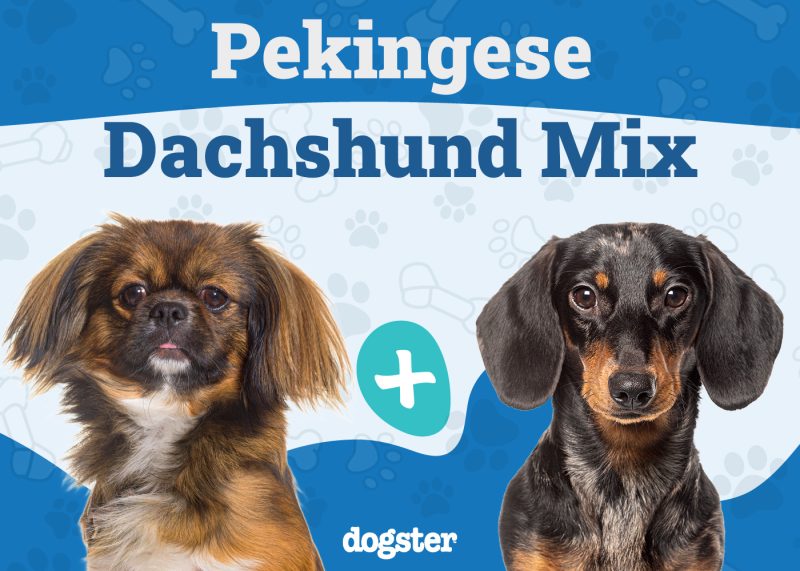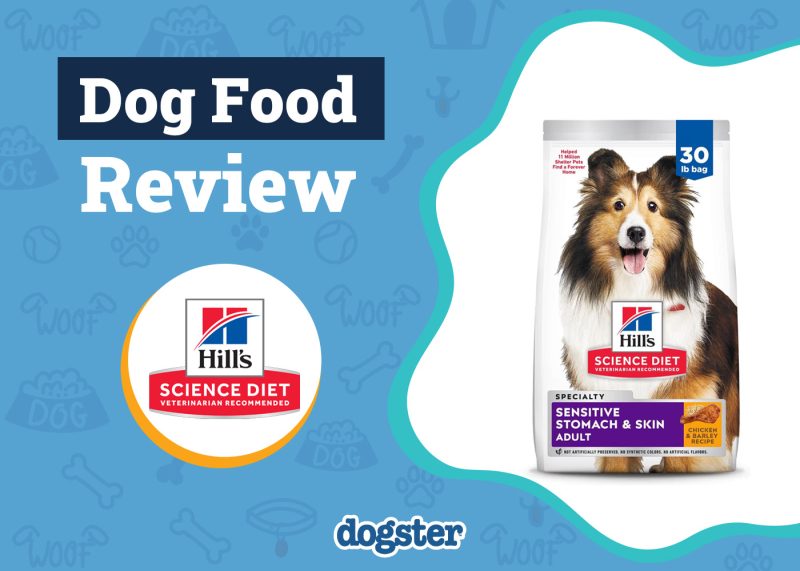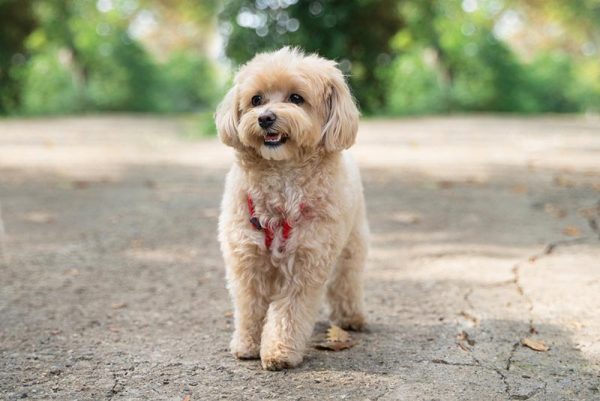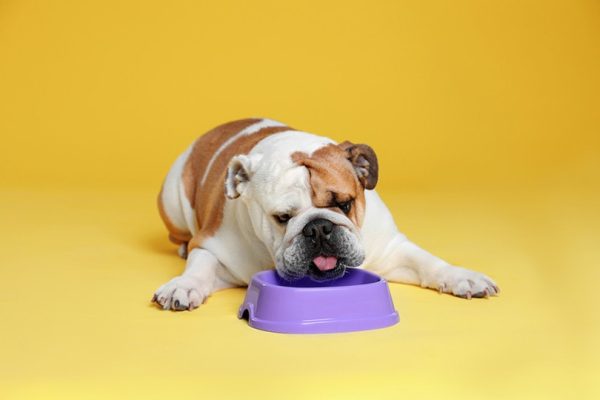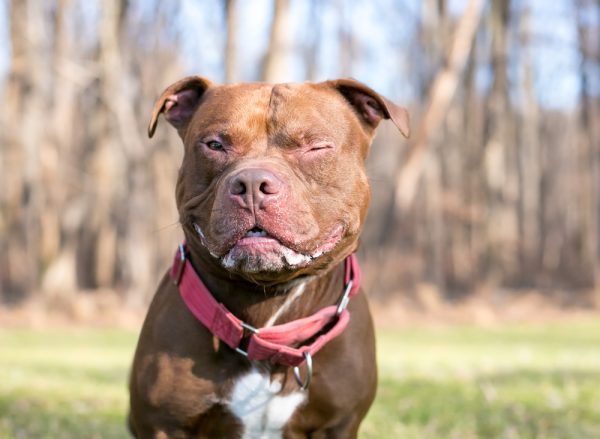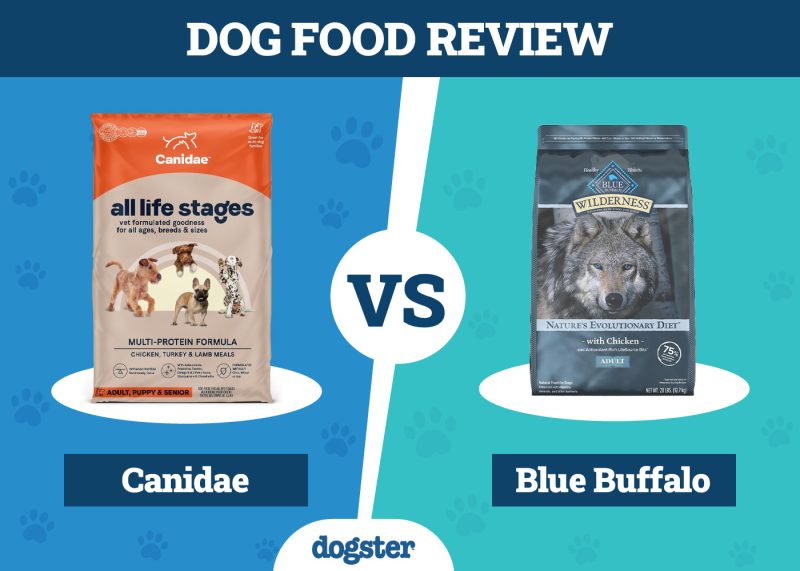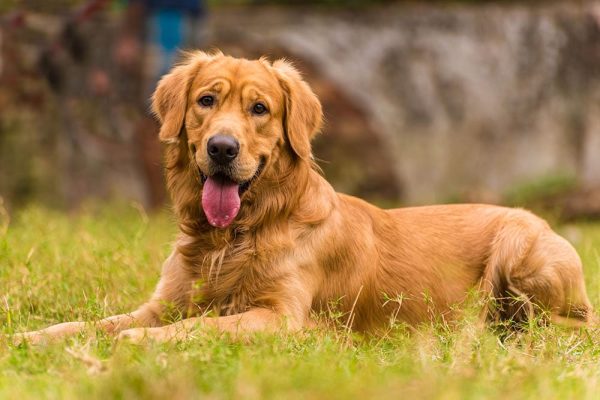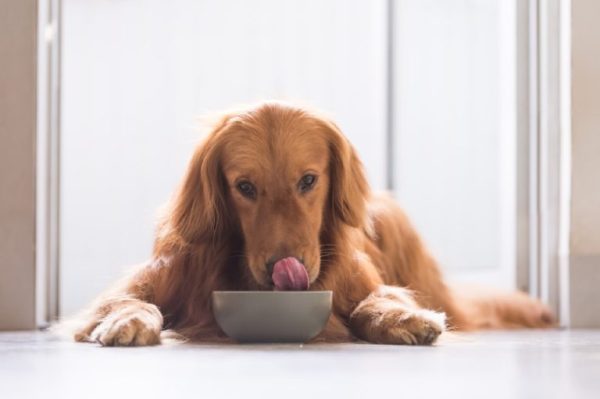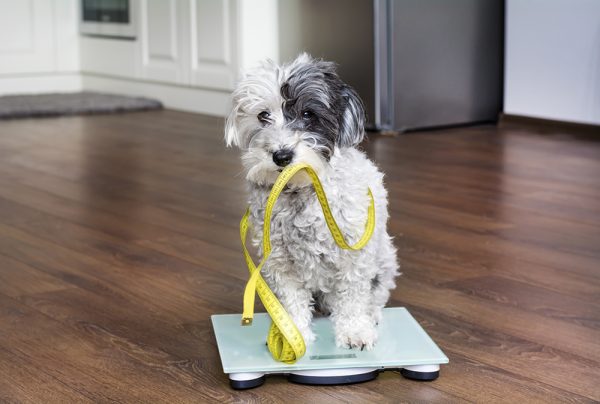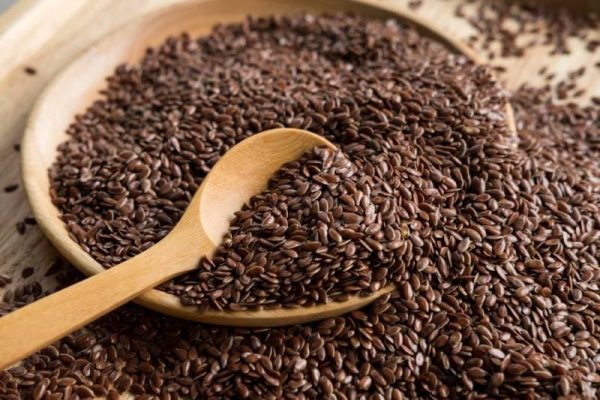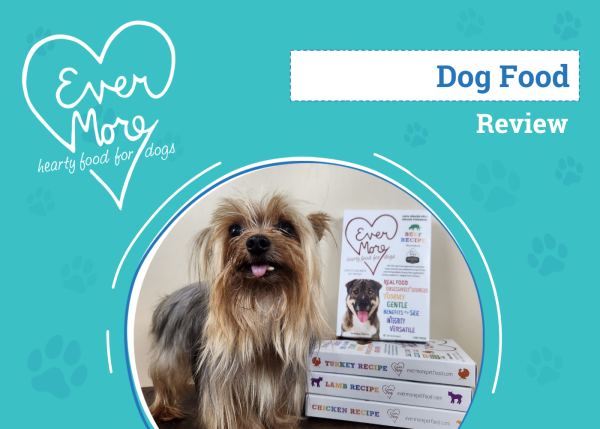Smelly dog farts are usually related to their diet or a digestive health condition. Below, we’ll explore why your dog’s flatulence is clearing the room. You’ll also learn tips for reducing your dog’s natural gas odor and making your home more pleasant.

Why Do Dogs Fart?
Gas is a natural product of the digestive system. Producing a little gas is completely normal, and dogs will flatulate to expel this gas from their digestive system. Excessive gas, on the other hand, can build up for a variety of reasons.
Swallowing air can increase the amount of gas that a dog has. Breeds with short noses, such as Pugs and Bulldogs, naturally swallow more air as they eat and drink and just throughout their day. Dogs who eat too fast or pant excessively can also consume excessive air.
Diet and health issues can also lead to excessive gas. Sudden changes in diet can disrupt a dog’s digestion, creating more gas. High-fiber foods can also create more gas as it takes a longer time to break fiber down. The longer it takes to digest something, the more gas can form due to fermentation.
Lastly, intestinal disease, parasites, and food allergies can all cause your dog to fart more or at least make them more smelly.
If you are concerned about your dogs digestive health, we suggest speaking to a vet.
If you need to speak with a vet but can't get to one, head over to PangoVet. It's our online service where you can talk to a vet online and get the advice you need for your pet — all at an affordable price!

What Makes a Dog’s Farts Smell Bad?
Farts that occur due to your dog swallowing air usually aren’t as smelly as those that happen due to digestive issues. If your dog’s farts smell especially rotten, investigate the foods they’ve been eating lately.
Beans, peas, soybeans, fatty foods, dairy products, and spoiled foods are common culprits of smelly flatulence. Peas and soybeans are frequently found in commercial dog foods. Some dogs are lactose intolerant, making dairy products a possible cause of smelly gas.
Some otherwise healthy vegetable snacks, such as broccoli, take longer to digest and often cause smelly gas in dogs.
What to Do if Your Dog Has Smelly Farts
If your dog’s farts are getting too smelly to live with, here are a few tips that can help.
- First, talk to your veterinarian. This is especially vital if your dog is showing other signs of illness, such as vomiting, diarrhea, or weight loss. Your vet can rule out any medical causes of your dog’s stinky gas.
- Once medical causes are eliminated, ask your vet to help you evaluate your dog’s diet. Read the ingredient list and look for any of the common causes of gas we mentioned earlier. Your dog may need a more digestible diet.
- If you do have to change your dog’s diet, remember to do it slowly. A quick diet change can easily make the smelly farts worse.
- Try to reduce the amount of air your dog swallows by serving small meals more frequently rather than one large one. You can also invest in a slow-feeding bowl or puzzle feeder to slow down the speed of their eating. Make sure your dog is getting enough exercise to encourage healthy intestinal movement.
- Avoid feeding human food as treats. Even safe foods can upset your dog’s stomach, and fruits or vegetables are high in fiber, which can also cause farting.
- Don’t give your dog medications or home remedies to treat their smelly farts without checking with your vet first.
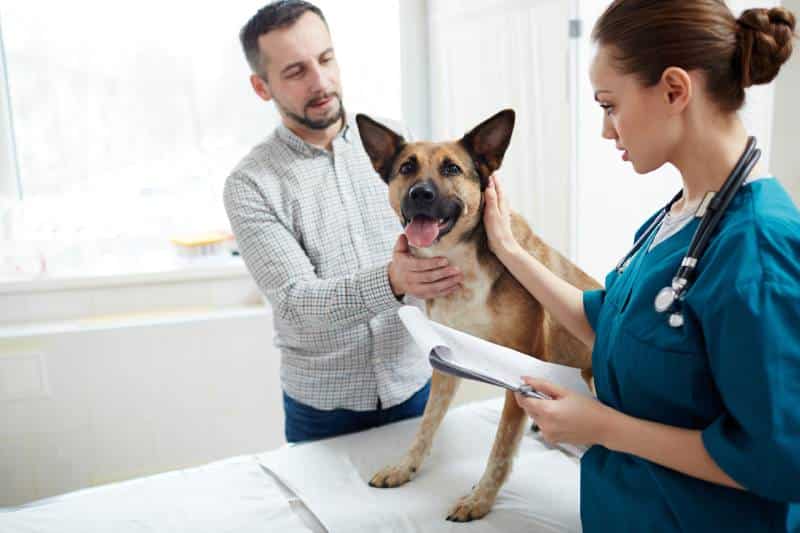

Conclusion
While it’s normal for a dog to flatulate, frequent and excessively smelly gas could be a sign that your pet needs a new diet or medical attention. You can’t necessarily eliminate all dog farts from your life, but following the tips in our article can reduce both the frequency and the odor. As always, don’t make diet or medication changes without talking to your veterinarian.
See Also:
Featured Image Credit: san4ezz, Shutterstock
